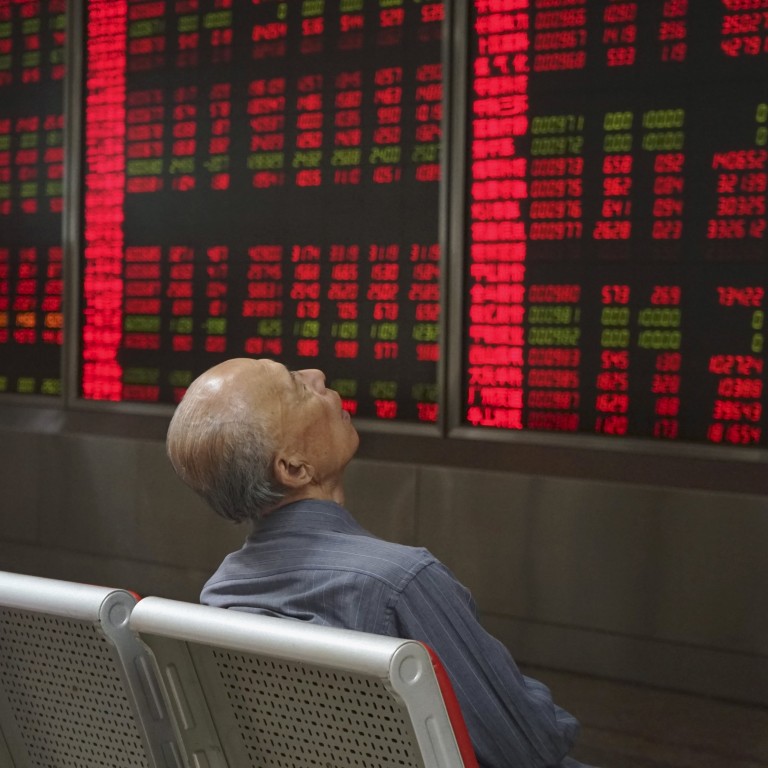
Cash is king for fund managers amid Chinese stock market slump
Cash is king. The golden rule of financial management seems to be the new motto for many fund managers amid the uncertainties in the stock market, despite the pitfalls of such a strategy in a near-zero interest rate environment.
Jeffrey Chan Lap-tak, founding partner of Hong Kong-based Oriental Patron Financial, said many fund managers have increased cash holdings to more than their usual 5 to 8 per cent levels, with some increasing it to as much as 10 per cent.
READ MORE: China fund managers slashed equity positions during market rout
“There are several reasons behind that, the main one being the market sentiment. Market volatility in both Hong Kong and China as well as worries over a US rate rise hurt the bond markets. This has led many funds, be they invested in bond or stocks in the China market, to hold more cash in anticipation of redemptions,” he said.
Another fund manager, who did not want to be named, said some fund managers who focus on the A-share market may have increased their cash holdings to 20-30 per cent following the mainland stock market rout in mid-June.
“As many fund managers found out that it may not always be easy to sell their shares, they started stocking up on cash to prepare for redemptions,” the fund manager said.
On the mainland, stocks are suspended from trading when they fall by the daily limit of 10 per cent, putting thousands of stocks out of circulation during the periods of wild market swings since mid-June.
In addition, since early July Beijing has restricted fund managers from selling stocks under their Qualified Foreign Institutional Investor (QFII) quota.
The scheme, launched in 2002, allows big fund houses and institutional international investors to invest in mainland stocks and bonds under a quota system. Many fund houses use the quota to invest in the mainland and package the investment as fund products that are sold to international investors.
Fund managers say that since July, they have found it difficult to get mainland brokers to sell A shares, which they attribute to Beijing’s market rescue plan.
The authorities have used various measures to discourage selling as part a broad suite of intervention policies to prop up the market after key indices fell by 30 per cent from their seven-year-high levels in mid-June.
Ben Kwong Man-bun, executive director and head of research of KGI Asia, said many fund houses have also increased their cash holdings in the wake of the shock currency devaluation in August, which saw the currency weaken three per cent that month.
“With many in the market believing the yuan would continue to devalue, causing more redemption of yuan investment products, fund houses have strengthened their cash positions,” Kwong said.
“The market outlook remains uncertain as the US is likely to increase the interest rate in the fourth quarter and China stocks may continue to fall. Many fund managers are naturally seeking safety in cash.”
Apart from mutual funds lining up the cash for possible redemptions, private banks are also increasingly opting to be more liquid.
Many wealthy Chinese now want more of their assets in cash in light of the market volatility in the past few months, said Andrew Sum Lok-chung, managing director, greater China region, at Barclays.
“Some of the clients are holding more than 10 per cent of their portfolio in cash as they are worried about the market. The normal level is about 5 per cent.”
Sum said clients should consider shifting the cash to stocks as interest rates remain close to zero following the US Fed’s decision to delay the rate hike cycle.
“Investors could consider buying stocks that could pay high dividends. If a portfolio has too much cash, it would affect its investment performance as the near-zero interest rate environment will persist for some time,” he said.
“Investing in high-quality stocks, including some Hang Seng Index stocks, could generate a dividend yield at 3 to 6 per cent. That is much better than holding cash in the medium to long term,” Sum said.

